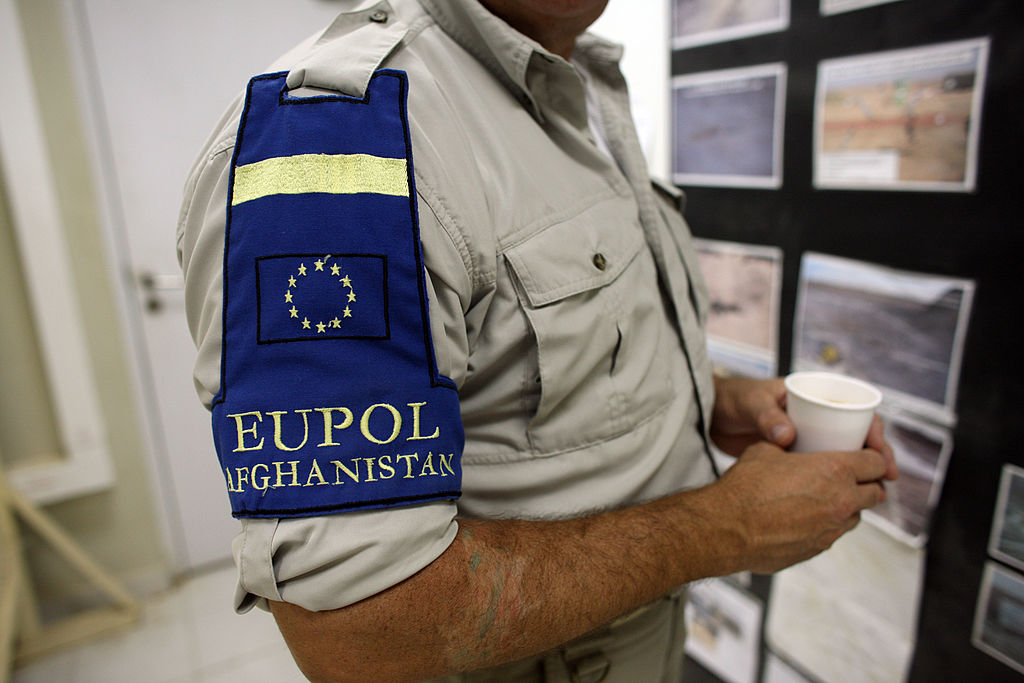Among America’s self-described foreign policy ‘realists,’ there is a common trope according to which the best way for the United States to get its allies to do more is to show them some tough love – particularly by doing less. That theory has just been put to a test in Afghanistan. It has failed spectacularly.
Contrary to the caricature of the protracted conflict in Afghanistan as a distinctly American endeavour, both the combat operations and the efforts at reconstruction were supported by an extraordinarily diverse coalition of countries, from New Zealand, through much of Europe, to Turkey.
Of some 150,000 British troops who served in Afghanistan during the past two decades, almost 500 were killed and 2,000 wounded. Germany, meanwhile, lost 59 soldiers in battle, and Poland lost 44. Europeans had good reasons to be there, too – and not only as a symbolic display of commitment to the transatlantic alliance. The 2015 refugee crisis and terror attacks in cities including Paris, Brussels, or Nice, demonstrated that Europe could not easily insulate itself from instability in the Middle East.
As the US plans to leave were firming up, Europeans rushed to the exits too
The tough love theory of burden sharing would suggest that the American withdrawal would incentivise Europeans to step up – particularly given that they had a direct stake in the outcome. What has happened instead, however, was the complete opposite. As the US plans to leave were firming up, Europeans rushed to the exits too. German and Polish troops left at the end of June, while the UK maintains a small contingent to assist with evacuations.
With America’s erratic withdrawal, the rapid downfall of Afghanistan’s capital, and the chaos at Kabul airport, where exactly is Europe? Having spent the weekend tweeting about a host of other subjects, including the G20 and North Macedonia, it took until Monday for the EU’s high representative for foreign affairs Josep Borrell to co-sign a trite five-sentence statement asserting that ‘the Afghan people deserved to live in safety, security and dignity’ and that ‘the international community [stood] ready to assist them,’ without specifying how.
Later today, a video meeting of the EU’s foreign ministers is to be held, surely leading to another toothless document, likely handwringing over Afghanistan’s deteriorating human rights situation and the Taliban’s treatment of women. And if things go downhill fast enough, the Taliban may well face the truly devastating prospect of EU sanctions.
Despite its newly gained independence from the EU, the UK’s appetite to do more in the absence of US leadership is also limited. This is best illustrated by the fact that the foreign secretary Dominic Raab headed off on holiday to Cyprus as the biggest setback to Western-led alliances in the 21st century unravelled. At best, one can hope that Europeans and the British will take more serious efforts than the United States to help Afghans who were assisting the US-led coalition to get to safety.
It might be the case that US allies have concluded, much like Joe Biden and his national security team, that Afghanistan does not really matter that much – notwithstanding Europe’s relatively recent experience with chaotic migration and the fact that the Taliban has been assisted in its efforts by China’s client state, Pakistan. One certainly hopes that those determinations are correct. Hope alone, however, does not make them so.
The current situation should demonstrate to Westerners that ‘values,’ ‘rules,’ and multilateralism are no substitute for hard power and strategy. The Taliban’s leadership cares little about the international ‘isolation’ that the EU is threatening them with. Instead – and unlike much of the West – it stands ready to wield ruthlessly the little hard power it has to achieve its goals. And while the theocratic regime might seem like an aberration, it is not. Most, if not all of the West’s adversaries share the Taliban’s contempt for the ‘liberal international order,’ which they see either as a delusion or an instrument of hypocrisy.
Most importantly, on the idea that US allies will step up when Washington leaves them no other option, Afghanistan shows that things unravel quickly when America renounces its leadership role – particularly in a fit of reckless, incompetent, teenager-like spite displayed by the current (and previous) administration. Those on the front lines in particular – Taiwan, the Baltic states, Poland, or South Korea – should better take note and plan accordingly. Yet, to think, as many in the West do, that the consequences of the catastrophe unfolding in Afghanistan will remain confined to faraway countries of which we know little betrays a profound ignorance of history.






Comments